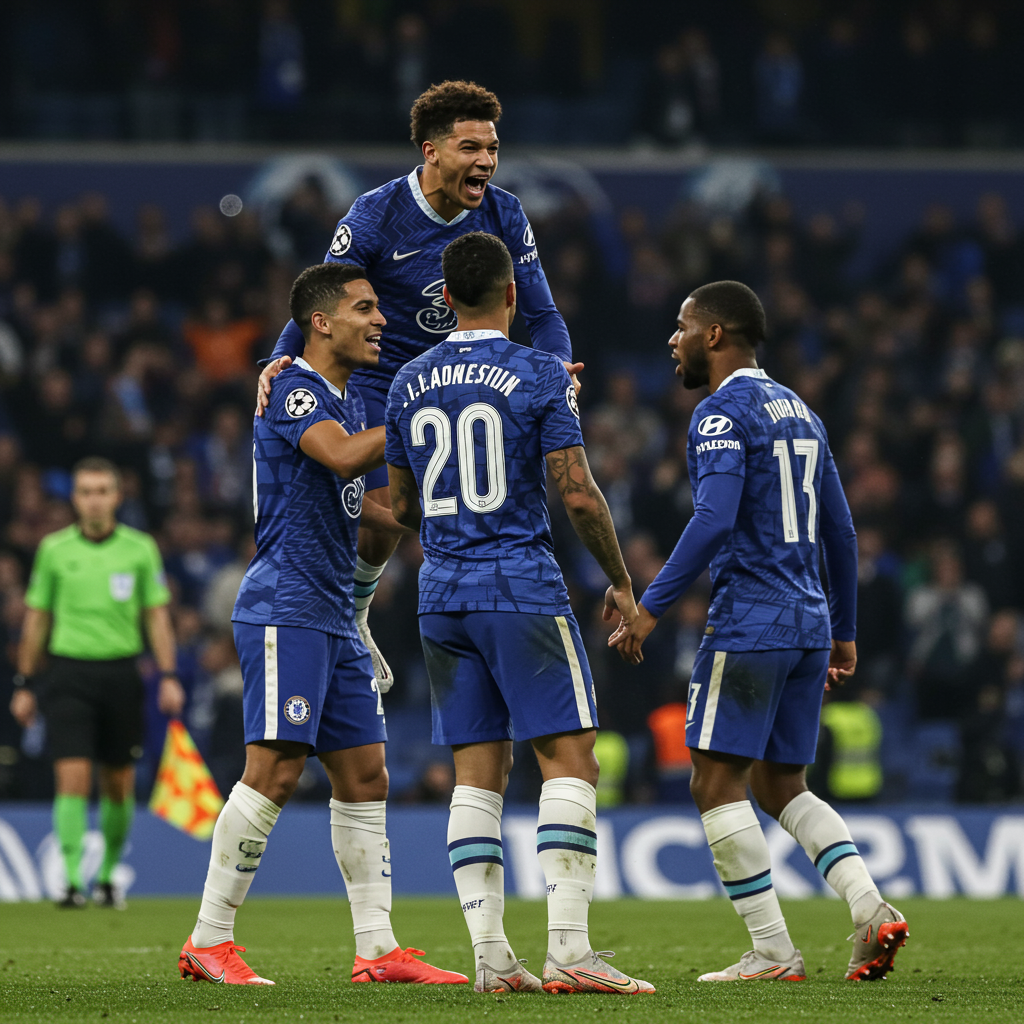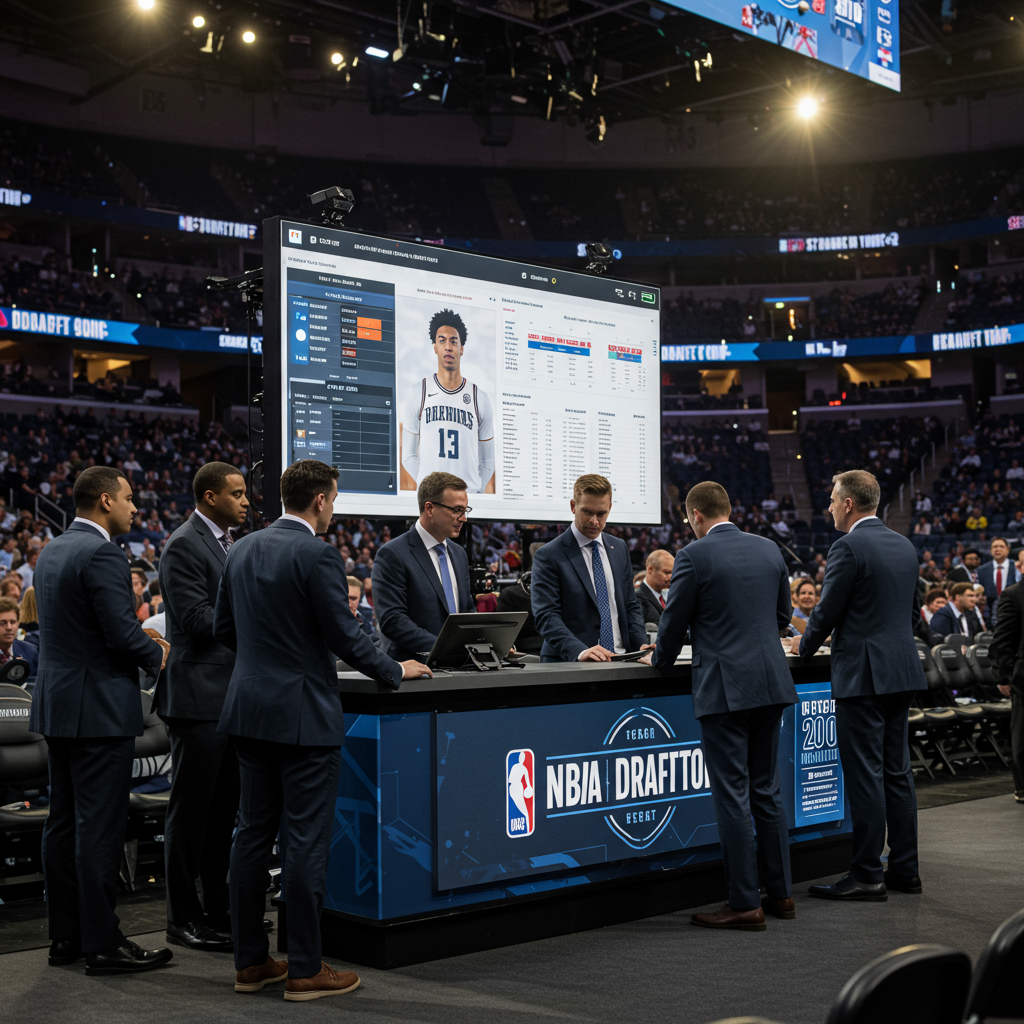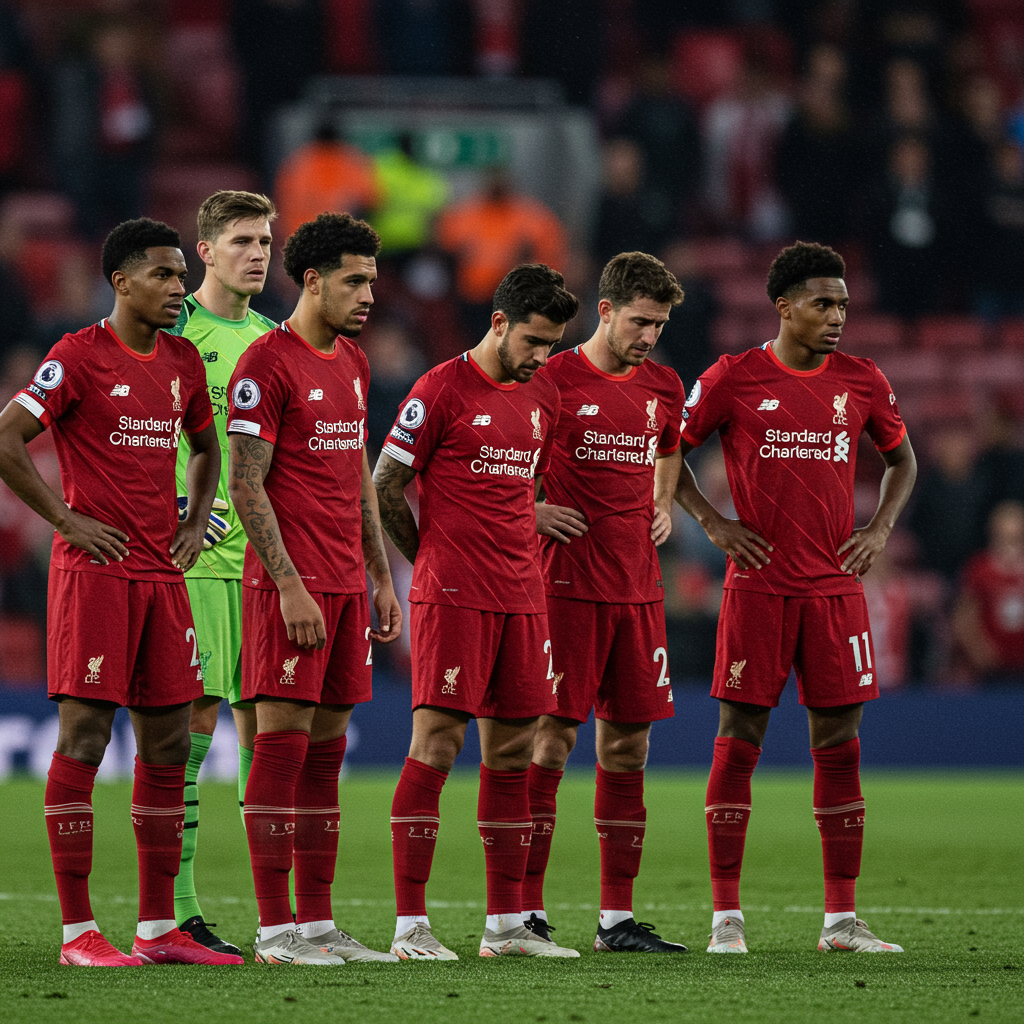chelsea secured a hard-fought 2-1 victory against Brazilian side palmeiras in the FIFA Club World Cup quarter-finals on July 5, 2025. The intense clash, held at Lincoln Financial Field in Philadelphia, saw the English club overcome a resilient Palmeiras team, featuring future Chelsea star Estevao. This win propelled Chelsea into the tournament’s semi-finals, setting up a highly anticipated match against fellow Brazilian club Fluminense. The result also marked another significant meeting between the two clubs, echoing their previous encounter in the 2021 Club World Cup final, which Chelsea also won by the same scoreline after extra time.
Match Breakdown: Goals and Key Moments
The match began with both teams aiming to control possession and tempo. Chelsea, fielding a strong squad, managed to break the deadlock relatively early. In the 16th minute, dynamic midfielder Cole Palmer found space and delivered a clinical finish. This put the Premier League side ahead, rewarding their initial attacking intent. Palmer’s goal was a crucial moment, demonstrating his growing influence in the team and adding his name to the list of English scorers in the tournament.
Palmeiras, however, refused to be deterred. The Copa Libertadores champions pushed back, creating their own opportunities. Their persistence paid off in the second half. Just eight minutes after the restart, in the 53rd minute, the highly-rated young forward Estevao produced a moment of brilliance. He received the ball, drove forward, and struck a superb shot that beat the Chelsea goalkeeper, leveling the score at 1-1. Estevao’s goal was particularly notable, not only for its quality but also because he is set to join Chelsea after the tournament concludes. At just 18, he became one of the youngest goalscorers in the competition’s history.
Late Drama Decides the Tie
With the score tied and time winding down, the match appeared destined for extra time. Both teams battled fiercely in midfield. Chelsea maintained significant pressure as the second half progressed. The decisive moment arrived dramatically in the 83rd minute. A cross from Malo Gusto from the left flank took a cruel double deflection inside the Palmeiras penalty area. This deflection wrong-footed goalkeeper Weverton and bounced into the net. The goal was ultimately credited as an own goal by Palmeiras player Agustín Giay, though some reports also suggested Weverton was impacted by the deflections. While a tough way for Palmeiras to concede, the goal secured Chelsea’s 2-1 lead late in the game.
Following Chelsea’s second goal, Palmeiras mounted a final push in search of an equalizer. They brought on attacking players and pressed high up the pitch. However, Chelsea defended resolutely, managing the game effectively in the closing minutes and added time. Substitutions were made by both managers to influence the final outcome and manage player fatigue. Despite Palmeiras’ efforts, they could not find a second goal, and Chelsea held on for the narrow victory.
Performance Analysis and Statistics
Match statistics highlighted Chelsea’s overall dominance throughout the game. They commanded possession, controlling the ball for 62.7% of the match compared to Palmeiras’ 37.3%. This control translated into significantly more attacking opportunities. Chelsea registered a total of 19 shot attempts, with 6 of those hitting the target. In contrast, Palmeiras managed just 7 shots in total, with only 2 on target. Palmeiras goalkeeper Weverton was kept busy, making 5 saves, underscoring Chelsea’s attacking threat. Chelsea’s goalkeeper made 1 save.
The expected goals (xG) statistic further supported Chelsea’s performance, with their xG of 1.14 significantly higher than Palmeiras’ 0.21. This suggested that Chelsea created chances of a higher quality and volume, indicating they deserved the win based on attacking output, even if the winning goal had an element of luck.
Key Player Highlights
Several players stood out during the quarter-final encounter. For Chelsea, Cole Palmer continued his impressive form by opening the scoring. Enzo Fernandez delivered an “all-action” performance, showing signs of fully settling into the team’s structure under manager Enzo Maresca. His display was described as a “captain’s performance,” showcasing leadership and control in midfield. Malo Gusto’s contribution was pivotal, as his cross led directly to the winning goal.
On the Palmeiras side, Estevao was undoubtedly the standout performer. His superb equalizer not only demonstrated his individual talent but also offered Chelsea fans a glimpse of what he will bring to their squad in the future. Goalkeeper Weverton also had a strong game despite the unfortunate nature of the winning goal, making several key saves to keep his team in the contest for long periods.
Discipline was also a factor, with several yellow cards issued. Chelsea players Liam Delap and Levi Colwill both received cautions, which proved costly later. Palmeiras also saw players cautioned, including Micael and Richard Ríos.
Tournament Context and Next Steps
Chelsea’s victory over Palmeiras secured their passage to the Club World Cup semi-finals. Their next challenge is another formidable Brazilian opponent, Fluminense. Fluminense booked their place in the semi-finals by defeating Al Hilal 2-1 in their own quarter-final tie. The semi-final between Chelsea and Fluminense is scheduled to take place on July 8th in New Jersey, USA. This match continues a trend of Chelsea facing Brazilian opposition in the tournament, having already played (and lost to) Flamengo in the group stage and now overcoming Palmeiras.
The win against Palmeiras provides valuable high-intensity match experience for Chelsea’s relatively young roster. Manager Enzo Maresca acknowledged the difficulty of the game, particularly being at the end of Chelsea’s domestic season compared to the beginning of Palmeiras’. He praised his players’ energy and called the result “a perfect night.” This type of competitive fixture helps build team chemistry and cohesion, crucial for the upcoming season. Furthermore, progression in the Club World Cup can offer financial benefits to the club.
Squad Availability for the Semi-Final
Looking ahead to the semi-final against Fluminense, Chelsea will face some player availability issues. Both defender Levi Colwill and forward Liam Delap will be suspended for the match after accumulating their second yellow cards of the tournament against Palmeiras. This will require tactical adjustments from Maresca. However, the squad will be boosted by the return of midfielder Moises Caicedo, who was suspended for the quarter-final match. Palmeiras, meanwhile, were already missing key players due to injury and suspension in the quarter-final.
The encounter also provided a poignant moment with Estevao scoring against his future club. Reports indicated that Cole Palmer shared a conversation with Estevao after the match, expressing anticipation for him joining the Chelsea ranks. This interaction underscored the unique dynamic of the tournament and the global nature of modern football transfers. The result, while ending Palmeiras’ Club World Cup journey, adds another chapter to the history between these two prominent clubs.
Frequently Asked Questions
What was the final score of the Palmeiras vs Chelsea Club World Cup match on July 5, 2025?
Chelsea defeated Palmeiras with a final score of 2-1 in the FIFA Club World Cup quarter-final played on July 5, 2025. Chelsea initially took the lead through Cole Palmer, Palmeiras equalized with a goal from Estevao, and Chelsea secured the win late in the second half via an own goal by Palmeiras.
Who will Chelsea play next in the Club World Cup semi-finals?
Following their 2-1 victory over Palmeiras, Chelsea advanced to the semi-finals of the FIFA Club World Cup. They are scheduled to face another Brazilian club, Fluminense, in the semi-final match on July 8th in New Jersey. Fluminense qualified for this stage by defeating Al Hilal.
What was notable about Estevao’s goal against Chelsea in the quarter-final?
Estevao’s equalizer for Palmeiras in the 53rd minute against Chelsea was particularly notable because the young Brazilian forward is set to join Chelsea after the Club World Cup. His goal was a superb individual effort, and at 18 years old, it made him one of the youngest goalscorers in the tournament’s history.
The victory over Palmeiras ensures Chelsea continues its campaign in the FIFA Club World Cup, facing another significant challenge against Fluminense as they aim for tournament success.
Word Count Check: 1012




